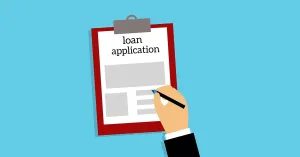If you are considering obtaining a hard money loan and are looking for hard money lenders who will 100% finance your deal, this article written by Anson Young for Bigger Pockets offers some unique and outside the box approachs to making it a reality.
The article starts out with the question, "Who should I approach to raise the equity capital?" There are three circles of people you can reach out to fund your deals:
The Primary Circle
This circle is made up of family, friends, and acquaintances. It could be a parent, aunt, coworker, the goalie from your rec soccer team—any individual you personally know. Many investors find their first funding from this circle. Why? Because there’s a low barrier of entry. Also, they are inclined to say yes because they know you and hopefully would want to partner with you.
There are, however, negative aspects of raising money from friends and family. They may not be knowledgeable enough to know the difference between a good and bad deal. Be very clear about the risks. Make sure your lender truly has enough money for the deal and could afford to lose the investment if it goes south. Otherwise, the deal may sour the relationship.
This circle can provide that essential initial source of funds—like earnest deposit money. Using money from primary circle lenders gives you time to create value by locating and locking up deals so that you can raise additional money.
The Secondary Circle
The secondary circle of investors is the friends and colleagues of your primary circle. The bigger your primary circle, the bigger your secondary—so get out there and make more friends. Your secondary circle is, appropriately, the second-best source for raising capital. They’ll generally be receptive to listening to your proposal, given that your primary circle’s mutual contact gave the nod of approval.
But take the good with the bad: It will likely take more time to raise money since this group is less positively inclined to say yes. You’ll need to prove your worth by preparing an investment presentation and meeting investors face-to-face.
The Third-Party Circle
This circle consists of people you don’t know personally, like investors removed from your network. This circle is the biggest capital pool that you can access, but it takes the longest to convert them into capital partners since they don’t know you personally or professionally.
How to Find Private Lenders
Start with lenders you know and their contacts—or the primary circle and secondary circle.
Spread the word
Chronicle your investment activities through social media as a credibility boost among those you already know. It consistently reminds people that you’re a real investor and a professional at what you do.
Additionally, call or email people that you already work with like agents, title company reps, your CPA, and closing attorneys—and everyone in between. Chances are you already have a relationship with someone who knows someone who can help you. This method can dig up a handful of small lenders with $10,000 to $50,000 they’re looking to invest.
The hard sell
Sit down with the potential lender and present your business plan. Have a proper, professional presentation and a pro forma package for them to review. Staying businesslike ensures you’re taken seriously by any contacts who run a bit more formal. Show them why they should invest with you: What deals have you completed? What return can you provide? Show them deals you are looking at right now, too.
By showcasing your success through social media and other outlets, more individuals will come to you, asking how they can also benefit from your success. With enough experience and success, it won’t be long before you stop seeking out private money lenders—and instead, they seek out you.
Seeking Out Lenders You Don’t Know—Yet
Eventually, you might get to the point where you have two to three awesome lenders helping you complete deals left and right. But what happens if you happen to lose one—or even all three? It’s never a bad thing to forge relationships with lenders. Before connecting with these individuals or companies, you’ll need to go out and find them. But how?
Network, network, network
Attend every local meetup you can. Also, go to the local chamber of commerce meetings and any conferences you can find. Put yourself out there and make sure those who previously didn’t know you get to—and want to work with you.
Public record search
If networking isn’t taking off and you don’t know anyone with money, try searching public records. Each time a loan is made, the related documents are publicly recorded at the local county government, found online or in the building itself. From these documents, you can find out who the lenders are on properties.
Specifically, you are looking for the “grantee” (mortgage provider) line. You want to find grantee lines that have either a person’s name or a corporate entity name, not the name of a bank. These are potential lenders for your next deal.
Online direct mail lists
Rather than looking up every property to find the lender, try one of these data broker sites:
- ListSource.com—"private party loan" is the key here
- DirectMail.com
- Melissa.com
- Click2Mail.com
Cold call
After creating your list of potential lenders, find their phone numbers, and give them a call. This is a relationship game. You could build rapport by talking about projects they are working on, other investors they work with, their kids, the local sports team, or one of a dozen different things. Show them how you bring value and don’t just pitch. Lenders will be able to see through phony enthusiasm.
Direct mail marketing
If you don’t want to call, you can send letters. You want to provoke an initial reaction, get them to call you, and start building rapport. Mention the property they lent on so they know what you’re talking about—and (of course) bring it back to your current deal and that you are currently looking for new private money lenders.
Make sure to include your call to action, asking them to contact you to discuss this further. But use the contact information you find only to build a relationship. Soliciting others at random for money can be both illegal (for you) and annoying (for them).





















Add comment